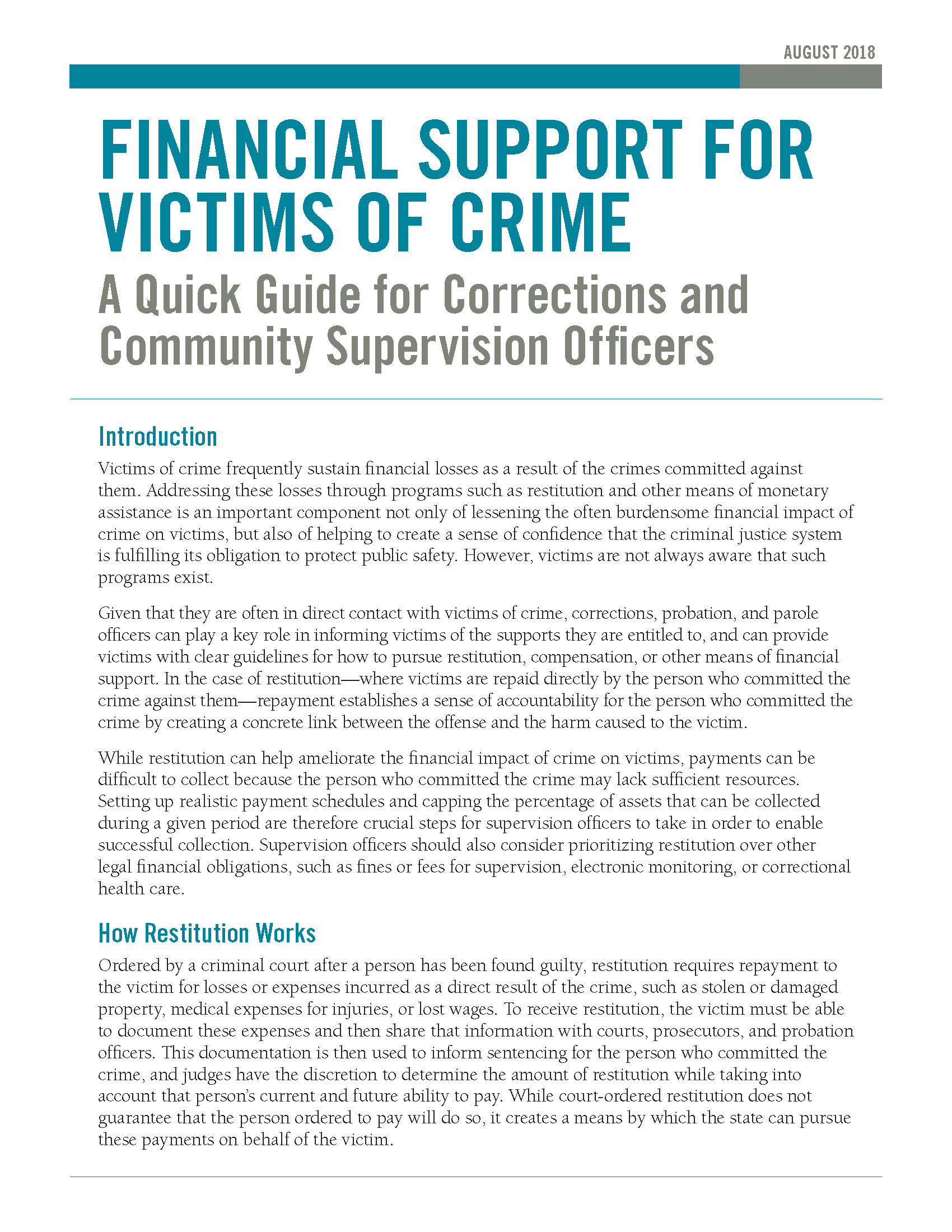Financial Support for Victims of Crime: A Quick Guide for Corrections and Community Supervision Officers
This brief from the National Reentry Resource Center outlines the role that corrections, probation, and parole officers can play in informing victims of the supports to which they are entitled and how they can pursue restitution, compensation, or other means of financial support. In the case of restitution—where victims are repaid directly by the person who committed the crime against them—repayment establishes a sense of accountability for the person who committed the crime by creating a concrete link between the offense and the harm caused to the victim.
The CSG Justice Center prepared this document for the National Reentry Resource Center with input from the National Center for Victims of Crime.
 New Hampshire Continues Justice Reinvestment Effort to Improve Conditions for People Who Are High Utilizers of Criminal Justice and Behavioral Health Systems
Read More
New Hampshire Continues Justice Reinvestment Effort to Improve Conditions for People Who Are High Utilizers of Criminal Justice and Behavioral Health Systems
Read More
 New Hampshire Commission Reviews Final Policy Recommendations to Reduce Reliance on Incarceration as Part of Justice Reinvestment Initiative
Read More
New Hampshire Commission Reviews Final Policy Recommendations to Reduce Reliance on Incarceration as Part of Justice Reinvestment Initiative
Read More
 Three Things to Know About New Jersey’s Groundbreaking Community Response Legislation
Three Things to Know About New Jersey’s Groundbreaking Community Response Legislation
In response to growing calls for police reform in New Jersey, particularly following the shootings of Najee Seabrooks and Andrew Washington in March and August 2023, a coalition of law enforcement officials, mental health professionals, and community advocates partnered to explore public safety response alternatives.
Read More













